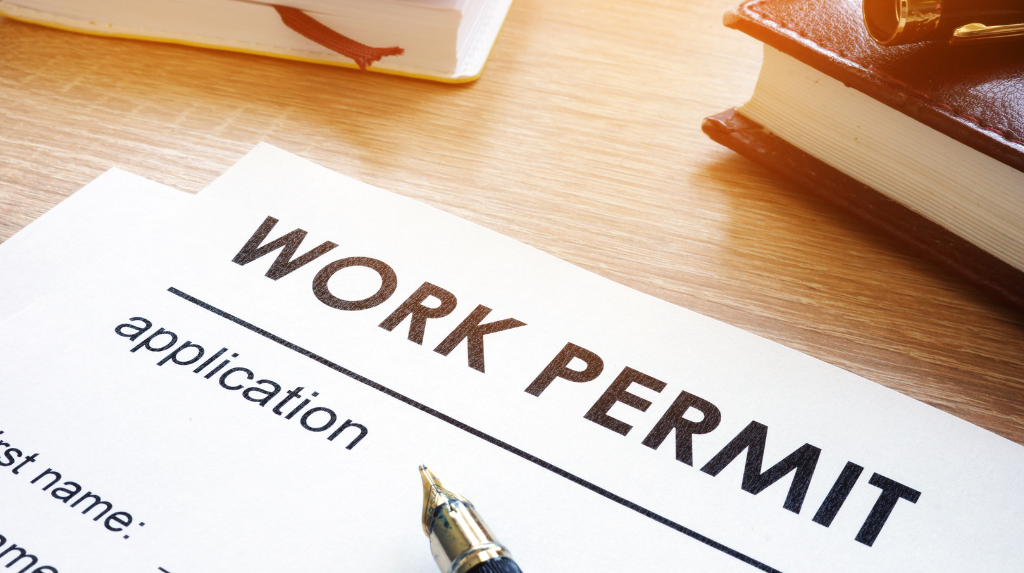If you are planning to join your spouse in France, you may need a French spouse visa to legally reside in the country. One crucial aspect that applicants often wonder about is the processing time for the French spouse visa. In this article, we will provide a comprehensive guide on the French spouse visa processing time, outlining the different stages, factors affecting processing times, and tips to expedite the process. Let’s dive in!
What is a French Spouse Visa?
A French spouse visa, also known as a conjoint visa, is a permit that allows foreign spouses of French citizens or residents to enter and reside in France legally. It falls under the category of long-stay visas, as the intended duration of stay typically exceeds three months.
Types of French Spouse Visas
There are different types of French spouse visas depending on the applicant’s situation, such as the Spouse of French National Visa (VLS-TS) and the Spouse of French Resident Visa (VLS-T). Each visa type has specific requirements and processing times.
Eligibility Criteria
To be eligible for a French spouse visa, certain conditions must be met. These may include proof of a genuine marital relationship, financial sufficiency, suitable accommodation in France, and adherence to public order and security requirements.
The Application Process
Gathering Required Documents
Before applying, it is crucial to gather all the necessary documents, such as a valid passport, marriage certificate, proof of accommodation, and evidence of financial means.
Submitting the Application
The visa application must be submitted at the French consulate/embassy in the applicant’s home country or the country of legal residence. Carefully fill out the application form and submit it with the supporting documents.
Biometric Appointment
Applicants are required to attend a biometric appointment to provide fingerprints and photographs, which are used for identification purposes.
Factors Influencing Processing Time
Embassy/Consulate Workload
The workload at the French embassy or consulate processing the applications can significantly impact processing times.
Visa Category and Country of Application
The type of spouse visa applied for and the applicant’s country of application can affect the processing time.
Completeness and Accuracy of Application
A well-prepared and complete application is likely to be processed more efficiently than an incomplete one.
Additional Security Checks
In certain cases, additional security checks may be necessary, which can extend the processing time.
Average Processing Time
Short-Stay Spouse Visa
On average, the processing time for a short-stay spouse visa ranges from 15 to 30 days.
Long-Stay Spouse Visa
For long-stay spouse visas, the processing time can vary between 3 to 6 months on average.
Tips to Expedite the Process
Thoroughly Prepare Your Application
Ensure all required documents are included and meet the specified criteria.
Choose the Right Visa Category
Select the appropriate visa category based on your situation to avoid unnecessary delays.
Book an Early Biometric Appointment
Schedule your biometric appointment as early as possible to get ahead in the process.
Opt for Premium/Fast-Track Services
Some consulates offer premium or fast-track services that expedite the processing time for an additional fee.
Common Reasons for Delay
Incomplete Application
An incomplete application will likely lead to delays as the consulate may request additional documents.
Request for Additional Documents
If the consulate requires further evidence or clarification, it can extend the processing time.
Administrative Processing
In certain cases, visa applications may undergo administrative processing, leading to delays.
Tracking Your Application
Using the Official Website
Most consulates provide online tracking systems where applicants can monitor the status of their visa application.
Contacting the Consulate/Embassy
If needed, applicants can directly contact the consulate or embassy to inquire about the application status.
Helpline and Online Chat Support
Some consulates offer helpline numbers and online chat support to assist applicants with queries.
What to Do If Your Application Is Delayed?
Contacting the Consulate/Embassy
If your application is significantly delayed, consider reaching out to the consulate or embassy for updates.
Seeking Assistance from Immigration Lawyers
In complex cases, seeking legal advice from immigration lawyers can be beneficial.
Reapplying with Corrected Documents
If your application is rejected due to missing or incorrect documents, you can reapply with the necessary corrections.
Interview Process
Purpose of the Interview
An interview may be required to assess the authenticity of the marital relationship and the applicant’s intentions.
Preparing for the Interview
Applicants should prepare for the interview by reviewing their application and supporting documents.
Dos and Don’ts
During the interview, be honest, confident, and avoid providing false information.
Applying for a French spouse visa can be a complex and time-consuming process. Understanding the factors influencing the processing time and following the tips provided can help streamline the application process. Remember to be patient and thorough in preparing your application to increase the chances of a successful outcome.
FAQs
Can I apply for a French spouse visa while in France on a tourist visa?
It is generally recommended to apply for the spouse visa from your home country or country of legal residence.
Can I work in France with a spouse visa?
Yes, a spouse visa allows you to work in France once you obtain a residency permit.
What happens if my visa application is denied?
If your application is denied, you will receive a notification with the reason for the refusal. You may have the right to appeal the decision in some cases.
How long does it take to receive the residency permit after arriving in France?
The timeline for receiving the residency permit varies, but it usually takes a few weeks after your arrival in France.
Can I travel outside France while holding a spouse visa?
Yes, you can travel within the Schengen Area with a long-stay visa, but make sure to check the specific visa conditions for re-entry.





